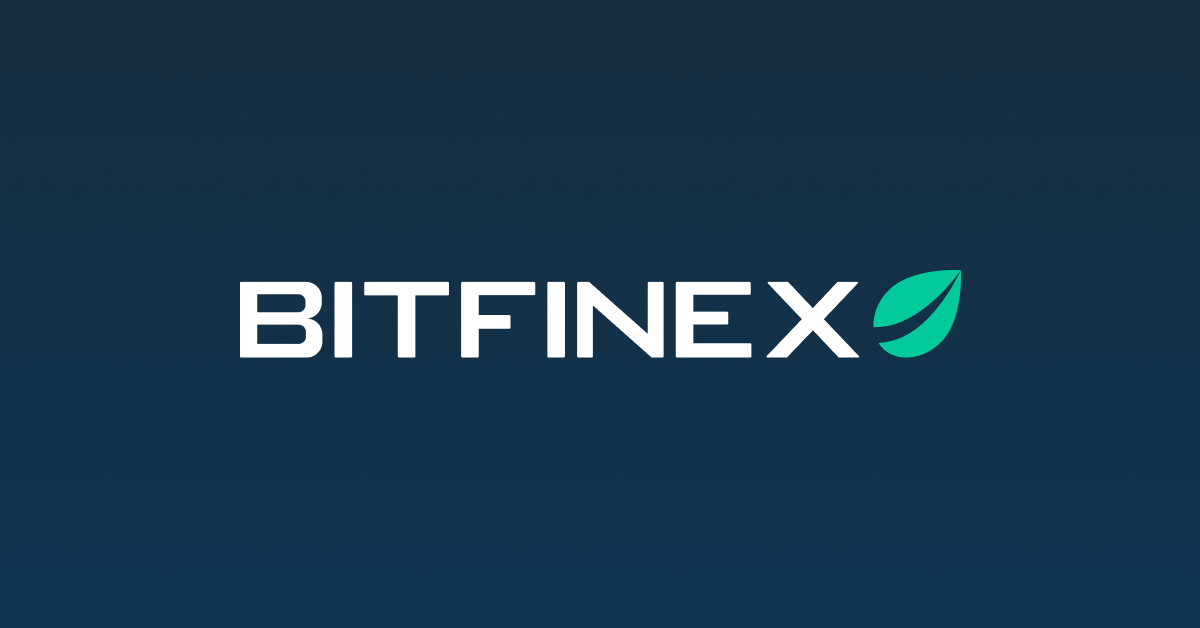Cryptocurrency
Bitfinex Securities Unveils Pioneering Tokenized Bond: ALT2611

Bitfinex Securities, a cutting-edge platform dedicated to the listing of tokenized real-world securities, has revealed its inaugural tokenized bond set to debut this November. This groundbreaking financial instrument, named ALT2611, is a 36-month bond offering an attractive 10% coupon rate, with denominations in Tether (USDT). The bond is being issued by Mikro Kapital, a prominent global player in the microfinance sector. Paolo Ardoino, Chief Technology Officer of Bitfinex, hailed this momentous occasion as the dawn of a new era for capital mobilization, leveraging deep and highly liquid markets as well as traditional stock and bond exchanges.
Bitfinex Securities is strategically positioned to assist issuers in their pursuit of capital by facilitating the listing of tokenized securities on publicly accessible exchanges. The platform extends access to a diverse array of financial instruments, with a notable emphasis on blockchain-based stocks and bonds, alongside investment funds. Companies seeking capital can employ Bitfinex Securities to list their tokenized securities directly on the exchange or harness its capabilities to facilitate seamless trading via the capital-raising platform. Furthermore, businesses can take advantage of the same cutting-edge technology utilized in cryptocurrencies to tokenize their assets, spanning debt and equity securities, thereby unlocking the potential for seamless transactions across exchanges and wallets.
Securities encompass a broad spectrum of financial instruments, enabling trade and conversion into various currencies across both public and private markets. These securities fall into three primary categories: debt instruments, akin to loans that necessitate regular repayment; hybrid securities, embodying a fusion of debt and equity elements; and equity securities, conferring ownership rights upon their holders. Bitfinex has detailed that the tokenized bond will commence trading at an initial price of 100 USDT, with a minimum investment threshold of 125,000 USDT. Distribution of the securities will commence within one week following the successful completion of the capital raise, featuring a three-year maturity period from the issuance date. The bond’s legal framework will be anchored in accordance with the laws of the Grand Duchy of Luxembourg.
According to the official announcement, Mikro Kapital intends to release 100,000 securitized tokens of ALT2611 to secure a fund infusion of 10 million USDT. Notably, it’s important to underscore that ALT2611 is not available to U.S. citizens or individuals situated within the United States or any other jurisdiction where the offering or sale would contravene the law.
Blockchain
Bitcoin ETFs Witness Surge in Trading Activity as SEC Approves 11 Products

In a significant development for the cryptocurrency industry, the U.S. Securities and Exchange Commission (SEC) recently approved 11 spot Bitcoin exchange-traded funds (ETFs). This approval comes after a decade-long struggle between regulators and the digital asset industry, marking a watershed moment for the acceptance of digital assets as mainstream investments. Among the approved ETFs are BlackRock’s iShares Bitcoin Trust, Grayscale Bitcoin Trust, and ARK 21Shares Bitcoin ETF.
Unprecedented Inflows:
On the first day of trading, these ETFs saw impressive activity, with $4.6 billion worth of shares changing hands across all the products, according to LSEG data. Bitwise, a crypto asset manager, reported that its spot Bitcoin ETF alone attracted $240 million, making it the most popular among the newly introduced products. Grayscale, BlackRock, and Fidelity dominated total trading activity, according to the LSEG data.
Also Read: Grayscale Court Decision Crucial in SEC’s Approval of Bitcoin ETFs, Says Chairman Gary Gensler
Bitwise’s Chief Investment Officer, Matt Hougan, expressed optimism about the future, stating, “We think that this will become a market measured in the tens of billions of dollars.” This surge in interest highlights a growing acceptance of Bitcoin and other cryptocurrencies among traditional investors.
Competition and Fee Wars:
The SEC’s approval has sparked intense competition among issuers to gain market share. Franklin Templeton, reacting swiftly, slashed the fee for its Bitcoin ETF to 0.19 percent, the lowest in the market. Additionally, the company waived fees entirely on the product’s first $10 billion in assets under management until August. Valkyrie, another player in the space, reduced its fees to 0.25 percent after its ETF started trading. This fee war is indicative of the fierce competition among ETF issuers to attract investor capital.
Grayscale’s Transition to ETF:
Grayscale, a prominent player in the cryptocurrency investment space, received approval to convert its existing Bitcoin trust into an ETF. This move instantly made it the world’s largest Bitcoin ETF, managing over $28.6 billion in assets. Despite this success, the ETF experienced outflows of $95 million on the first day of trading. The ability of Grayscale to navigate this transition will be closely watched, as it sets a precedent for other trusts considering a similar shift.
Regulatory Caution:
While the SEC’s approval is a significant step forward, it is important to note that SEC Chair Gary Gensler emphasized that the decision should not be interpreted as an endorsement of Bitcoin. Gensler referred to Bitcoin as a “speculative, volatile asset,” highlighting ongoing concerns about investor protection. The regulatory nod indicates a willingness to explore the potential of digital assets, but caution is warranted as the market continues to evolve.
Conclusion:
The approval of 11 spot Bitcoin ETFs by the SEC marks a turning point for the cryptocurrency industry. The influx of billions of dollars within the first day of trading demonstrates a growing acceptance of digital assets among traditional investors. The fee wars among ETF issuers and Grayscale’s transition into an ETF further highlight the competitive dynamics and challenges in the market. As the cryptocurrency market matures, ongoing regulatory scrutiny and investor sentiment will play crucial roles in shaping the future of these innovative financial products.
Cryptocurrency
Grayscale Court Decision Crucial in SEC’s Approval of Bitcoin ETFs, Says Chairman Gary Gensler

In a significant shift in approach, the United States Securities and Exchange Commission (SEC) Chairman, Gary Gensler, attributed the recent approval of spot Bitcoin exchange-traded funds (ETFs) to a pivotal court decision involving asset manager Grayscale.
The SEC, which had consistently denied applications for similar products since 2013, saw a change in perspective following Grayscale’s legal victory in August 2023. Gensler, in an interview with CNBC’s Squawk Box, acknowledged the impact of the court decision, stating, “We had disapproved a number of these [applications for a spot Bitcoin ETF] over the years, and something had changed.”
Emphasizing the importance of the rule of law, Gensler noted, “I’m a deep believer in the rule of law and respect for the courts, and taking a new court decision into consideration, we move forward. I think this is the most sustainable path forward.”
However, Gensler clarified that the SEC’s approval did not equate to an endorsement of Bitcoin. “We do not endorse [Bitcoin],” he reiterated.
The legal battle began when the SEC denied Grayscale’s application for the conversion of its Grayscale Bitcoin Trust (GBTC) into a spot Bitcoin ETF in June 2022. The rejection was based on the claim that the product was not “designed to prevent fraudulent and manipulative acts and practices.” Grayscale, in response, filed a petition for review with the United States Court of Appeals for the District of Columbia Circuit, leading to a significant victory on August 29, 2023. The court ruled in favor of Grayscale, deeming the SEC’s legal grounds insufficient and ordering a review of the case.
The SEC’s approval subsequently paved the way for 10 ETFs holding Bitcoin as their underlying asset on January 10, 2024. The inaugural trading session witnessed notable activity, with Grayscale’s GBTC contributing to almost half of the overall $4.5 billion trade volume on the day, totaling $2.3 billion, according to data from Yahoo Finance.
BlackRock’s iShares Bitcoin Trust (IBIT) secured the second spot with a trading volume of around $1 billion. BlackRock CEO Larry Fink, also speaking with CNBC’s Squawk Box, expressed his belief in cryptocurrency as an asset class rather than a currency.
The approval of Bitcoin ETFs marks a significant development in the crypto investment landscape, signaling a new era for institutional investors and potentially fostering greater acceptance of digital assets within traditional financial markets.
Blockchain
Rising Threat: Crypto ‘Drainers’ Exploit Unsuspecting Investors, Robbing Millions

In the dynamic world of cryptocurrencies, innovation is not confined to legitimate advancements. The ever-evolving crypto sector, currently boasting a market cap of $1.66 trillion, has unfortunately become a hotspot for cybercriminals utilizing new tools and applications to exploit vulnerabilities in crypto protocols. One such ominous tool making headlines is the ‘drainer,’ a malicious smart contract designed to infiltrate crypto wallets and steal digital assets. Recent reports reveal a concerning surge in drainer-related incidents, with over ten thousand phishing websites identified, and the tool being promoted through advertisements on Google and other platforms.
The Modus Operandi of ‘Drainers’
A ‘drainer’ is essentially a smart contract embedded with malicious coding, strategically targeting vulnerabilities in crypto protocols. Acting as a comprehensive suite for phishing, these tools provide cybercriminals with surreptitious access to their target’s crypto wallet. The deceptive nature of drainers lies in their camouflage within seemingly legitimate phishing websites. When unsuspecting members of the crypto community click on these deceptive websites, drainers gain access to the victim’s crypto wallet linked to their identity.
Once inside, cybercriminals can initiate unauthorized transactions, siphoning off the victim’s digital assets to other wallets under their control. This insidious method has reportedly enabled hackers to victimize 63,210 individuals, resulting in a staggering stolen wealth of $59 million between March and November of the current year.
The Proliferation of ‘MS Drainer’ and Its Implications
The infamous ‘MS Drainer’ has been identified as the weapon of choice for these cyber attackers, with over ten thousand phishing websites deploying it to exploit unsuspecting victims. What’s more alarming is the use of popular advertising platforms like Google and X to promote these malicious tools. Reports indicate that advertisements related to these drainers are surfacing under various crypto-related keywords on Google, while on X, users are being lured through fake NFT and token drop announcements.
Also Read: Base Network Sees Steady Growth, Surpasses $735 Million in Total Value Locked
The source code for crafting these drainer toolkits is reportedly being sold for $1,500 by an individual using the aliases ‘Pakulichev’ or ‘PhishLab,’ further highlighting the organized nature of these cyber threats. The sale of such toolkits makes it easier for less experienced hackers to participate in these nefarious activities, amplifying the overall risk to the crypto community.
Advertisements to Beware Of
Crypto enthusiasts need to exercise caution when encountering advertisements on Google and X, as these may be concealed phishing websites. On Google, deceptive ads could be associated with keywords such as Zapper, Lido, Stargate, Defillama, Orbiter Finance, and Radiant. On X, the situation is even more precarious, with drainer ads exploiting fake NFT and token drop announcements to entice users.
Despite repeated warnings and reports, major tech giants like Google and X have been slow to mitigate the presence of malicious crypto ads on their platforms. In April of this year, ScamSniffer, a cybersecurity service, revealed that crypto investors had already lost up to $4 million by engaging with hoax links scattered across the web, extracted from analyzing Google Ads data.
Conclusion: Safeguarding the Crypto Community
As the crypto sector continues to flourish, it becomes imperative for industry stakeholders, tech giants, and users alike to collaborate in implementing robust security measures. The rise of drainers and other sophisticated cyber threats underscores the need for heightened awareness, education, and proactive security measures within the crypto community. It is essential for platforms and users to remain vigilant, employ cybersecurity best practices, and stay informed about emerging threats to ensure the continued growth and security of the crypto ecosystem.







